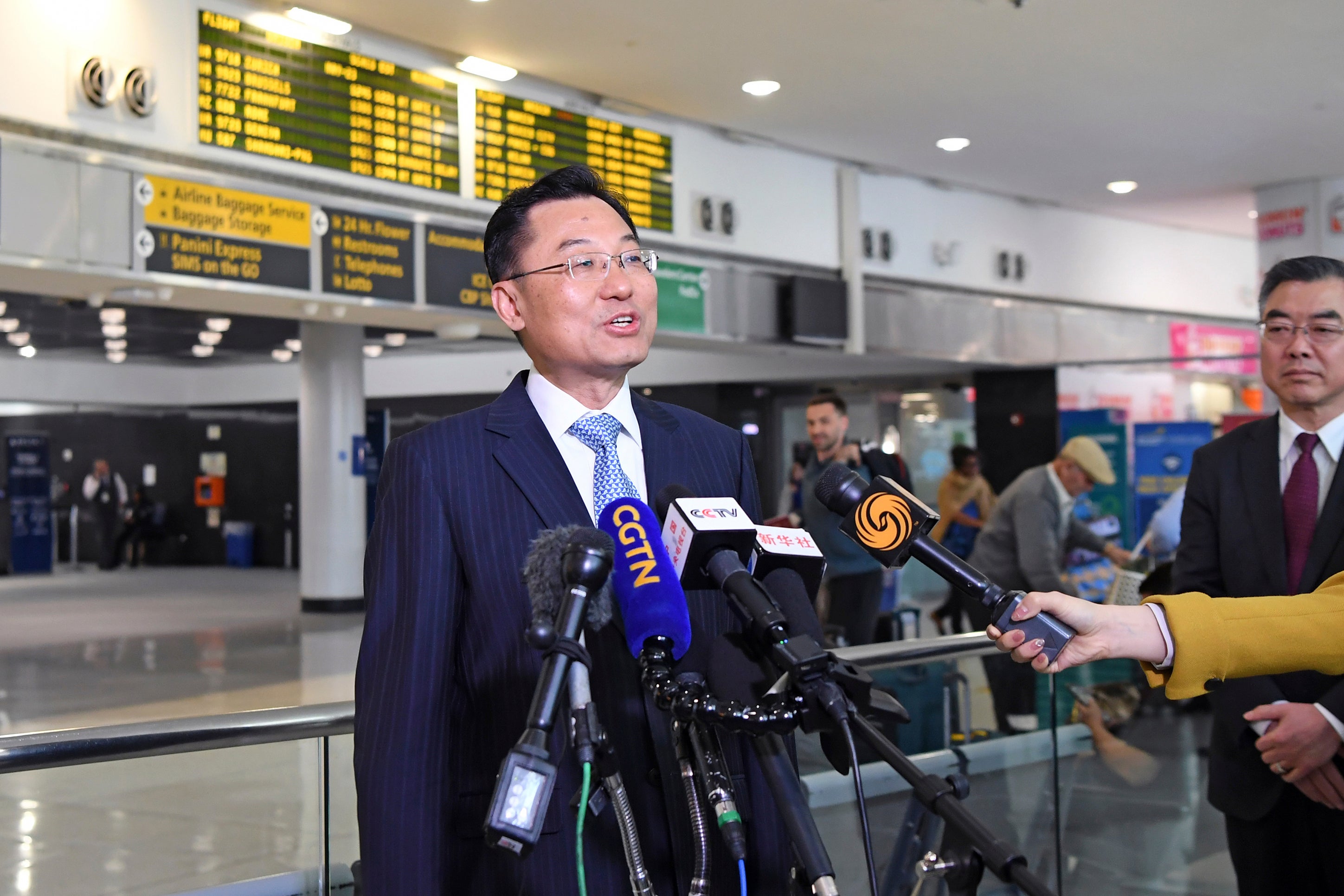New Chinese ambassador to US taking office amid disputes over trade, access to technology, Taiwan
China's new ambassador to the U.S. is taking office amid disputes over trade, access to computer chips and Washington's support for self-governing Taiwan

China’s new ambassador to the U.S. is taking office amid disputes over trade, access to computer chips and Washington’s support for self-governing Taiwan.
Xie Feng arrived in New York on Tuesday and told reporters at JFK Airport that relations between the world’s two largest economies face “serious difficulties and challenges.”
“We hope that the United States will work together with China to increase dialogue, to manage differences and also to expand our cooperation, so that our relationship will be back to the right track,” Xie said in remarks delivered in English.
The “Taiwan question” would be among the sensitive issues at the top of his agenda, Xie said.
Exchanges took a downturn after the Trump administration raised tariffs on key Chinese imports that President Jospeh Biden has since maintained, while blocking Chinese companies from accessing the most cutting-edge computer chip technology.
China has meanwhile raised its threats to attack Taiwan with regular incursions by ships and fighter jets into airspace and waters near the island that have drawn concerns about a crisis imperiling the global economy.
Despite the lack of formal diplomatic relations, the U.S. is the island's main source of defense cooperation and political support, drawing frequent protests from Beijing. A visit last August by then-House Speaker Nancy Pelosi prompted Beijing to fire missiles into the Pacific and stage send its forces into a rehearsal of a blockade in the Taiwan Strait.
Large-scale exercises were also launched after Taiwanese President Tsai Ing-wen visited the U.S. in April, during which she met with Pelosi's successor, Kevin McCarthy.
The shootdown in February of a suspected Chinese spy balloon that had traversed the U.S. led to the U.S. canceling a visit by Secretary of State Antony Blinken, pushing back a resumption of visits interrupted by China's strict COVID-19 travel restrictions.
Dialogue has been maintained on neutral territory, however, with top Communist Party diplomat Wang Yi holding talks with White House national security adviser Jake Sullivan in Vienna earlier this month.
Economic and person-to-person ties also remain robust, with bilateral trade last year also topped $690 billion, while an estimated 295,000 Chinese students are enrolled in American colleges and universities.